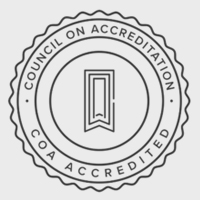Investing in the most vulnerable populations in our communities requires that as a society, we invest in the individuals who work in the social services field. The recruitment and retention of qualified workforce is essential in providing adequate quality care to those experiencing homelessness, who are food insecure, who need support due to mental health concerns, and so many more marginalized groups.
A significant proportion of programs that support these individuals and populations exist within not-for-profit organizations. It is no secret that not-for-profit organizations may not be able to provide the same salary that a for-profit company may be able to offer, which makes it a challenge to recruit and retain employees. However, when we as a community support policy that creates programs, such as the Public Service Loan Forgiveness Program, that relieve the burden on these workers, we are ultimately supporting the marginalized groups they work with.
According to educationdata.org, the average undergraduate student graduates with $36,635 of debt. The average debt for a master’s degree graduate is $71,287. Unfortunately, not all who carry this load of debt enter industries in which their earning potential will allow them to pay down their loans quickly. Especially those who have a passion for the human services and desire work at a not-for-profit organization, compensation may not offset the burden of high social and emotional demands required of the work.
If, as a society, we want to show we value the work that those in human services perform, we need to either pay them appropriately or provide alternative ways to support their longevity in the field. For either of those options to occur, communities as well as local, state, and federal government must make changes in policy that will fiscally support human service professionals. They don’t need to reinvent the wheel, however. Programs already exist that seek to relieve burden on those who are in the social services field. A program that does exactly that is the Public Service Loan Forgiveness Program (PSLF). PSLF is a US Department of Education program that forgives the remaining balance on Direct Loans after a payee has made 120 qualifying monthly payments under a qualifying repayment plan while working full-time for a qualifying employer, such as a not-for-profit organization. According educationdata.org, $290.4 million have been forgiven through this program. For the 2.99 million borrowers who were eligible for PSLF, this has made a huge difference. More programs like this are necessary to create a sustainable workforce in social services.
This program is not just something that sounds nice to me, but has been a program that has impacted me personally. The Public Service Loan Forgiveness Program (PSLF) has allowed me to continue doing the work I love serving children and families at Tanager without the fear of student debt forever hanging over my head. These types of programs attract quality workers to the human service field which ultimately leads to better outcomes for the people who are the highest need in our community.
Joella Gerber, LISW, RPT is the Clinic Program Manager and Therapist at Tanager, where she is honored to get to help kids, caregivers, teachers, and the community build resilience, integrate relational wellness, and find healing. As a Registered Play Therapist and Trust-Based Relational Intervention® Practitioner, Joella believes that relationships and connection are the key to wellness and finds hope in knowing that through intentional experience, support, and work, people can find solutions to the challenges in their lives. Joella is especially passionate about providing support and resources to kids and families who have experienced adoption, foster care, or other trauma. When not at work, you’ll probably find Joella with her nose in a book, on an outdoor adventure, or serving with her faith community.


